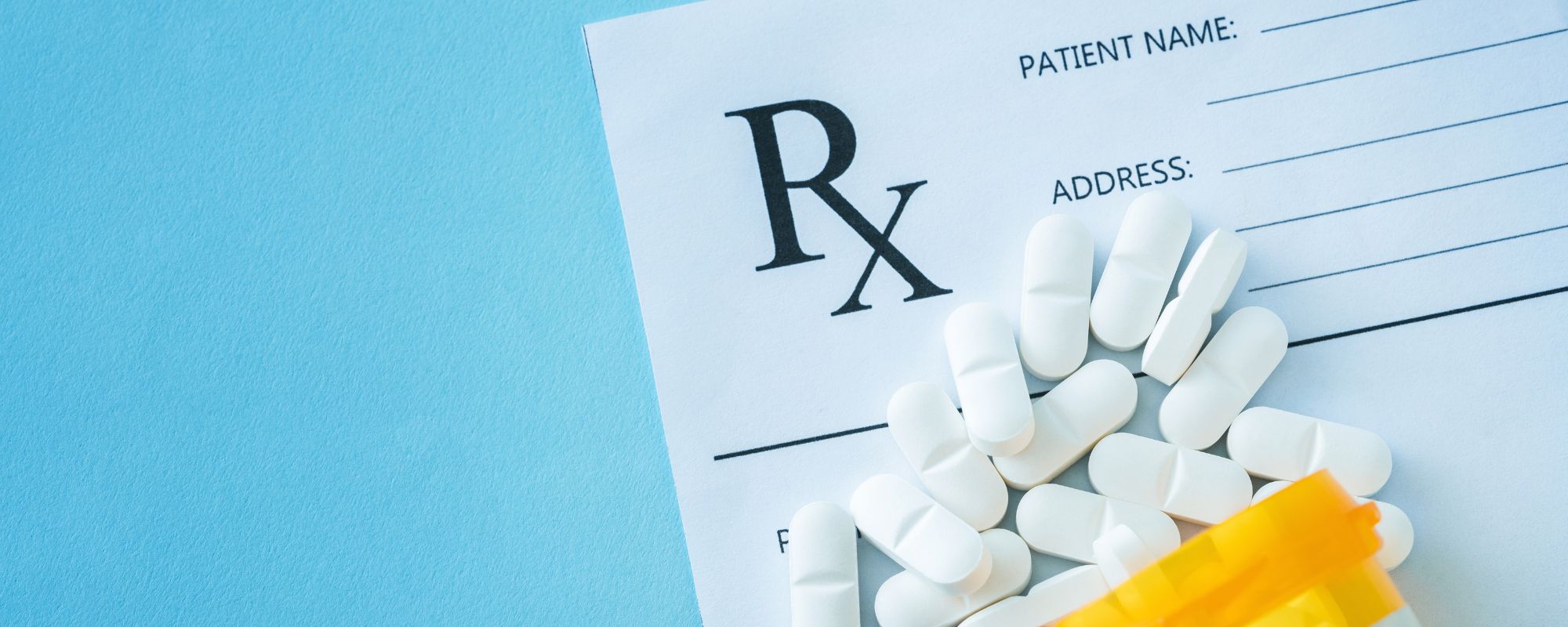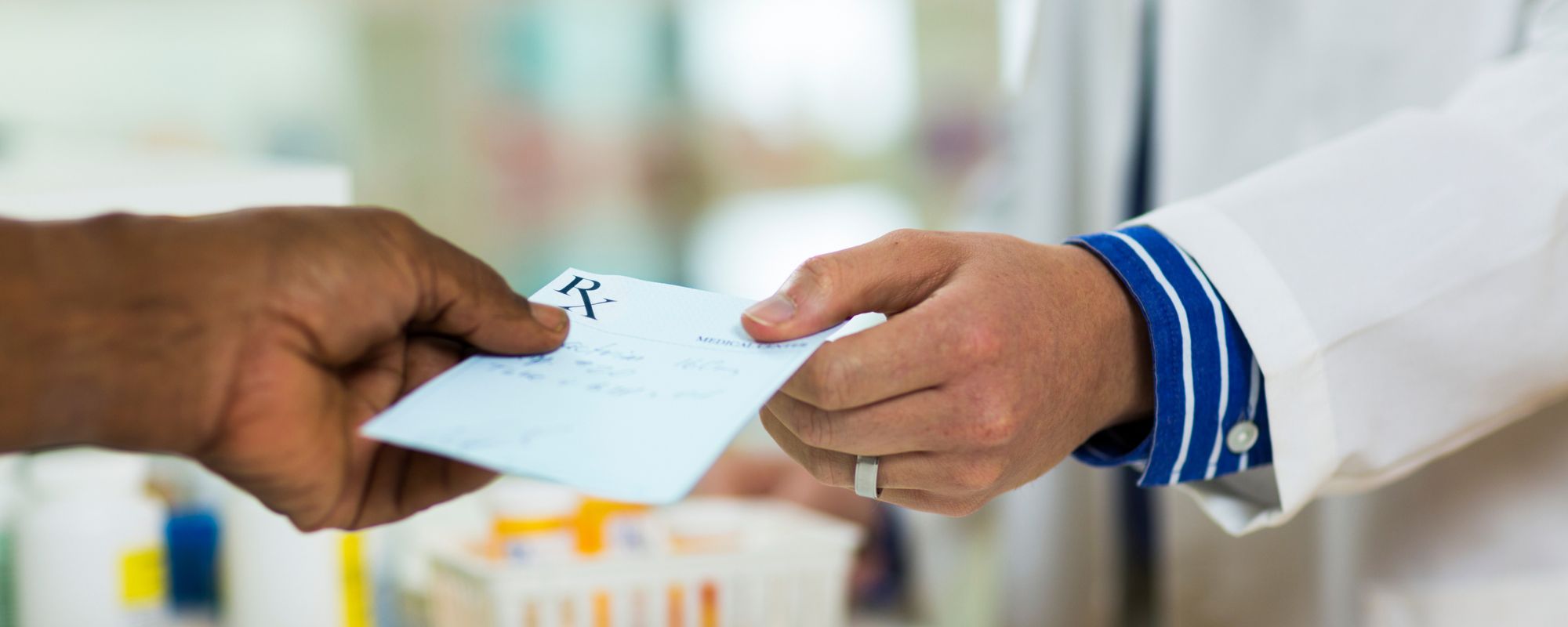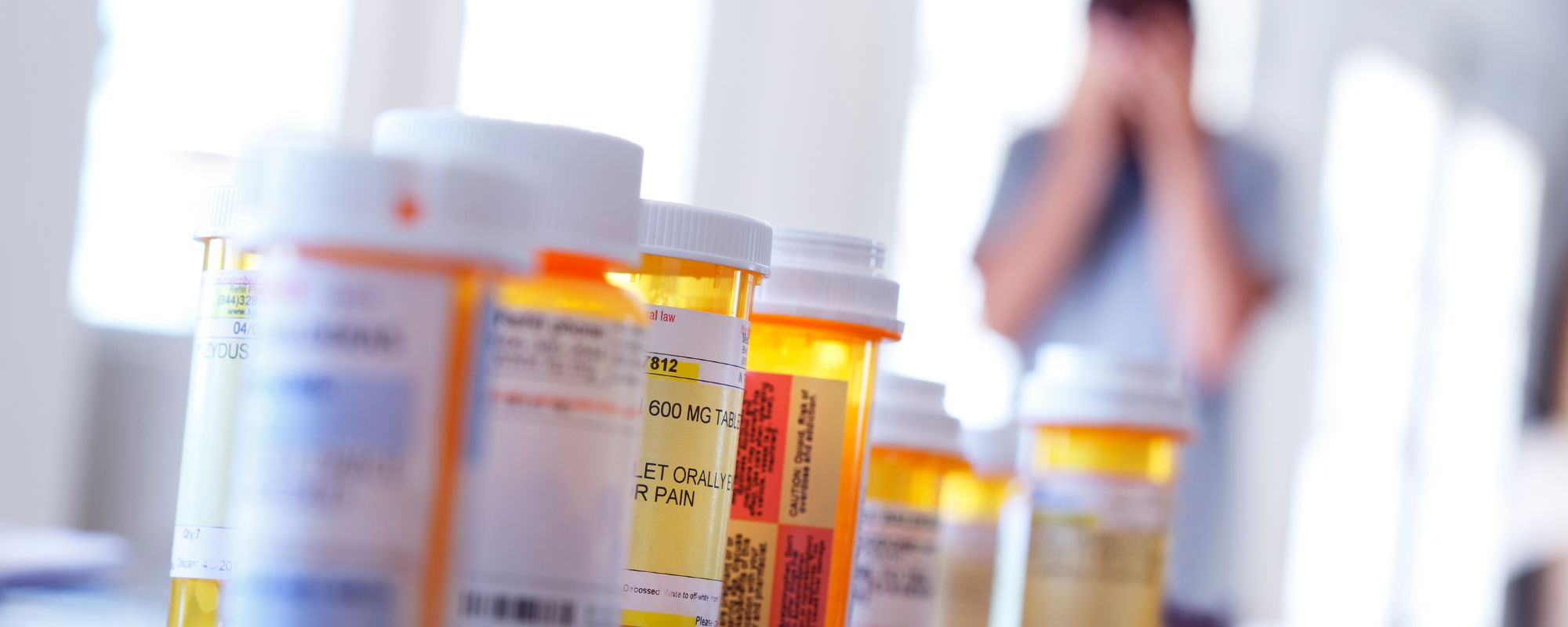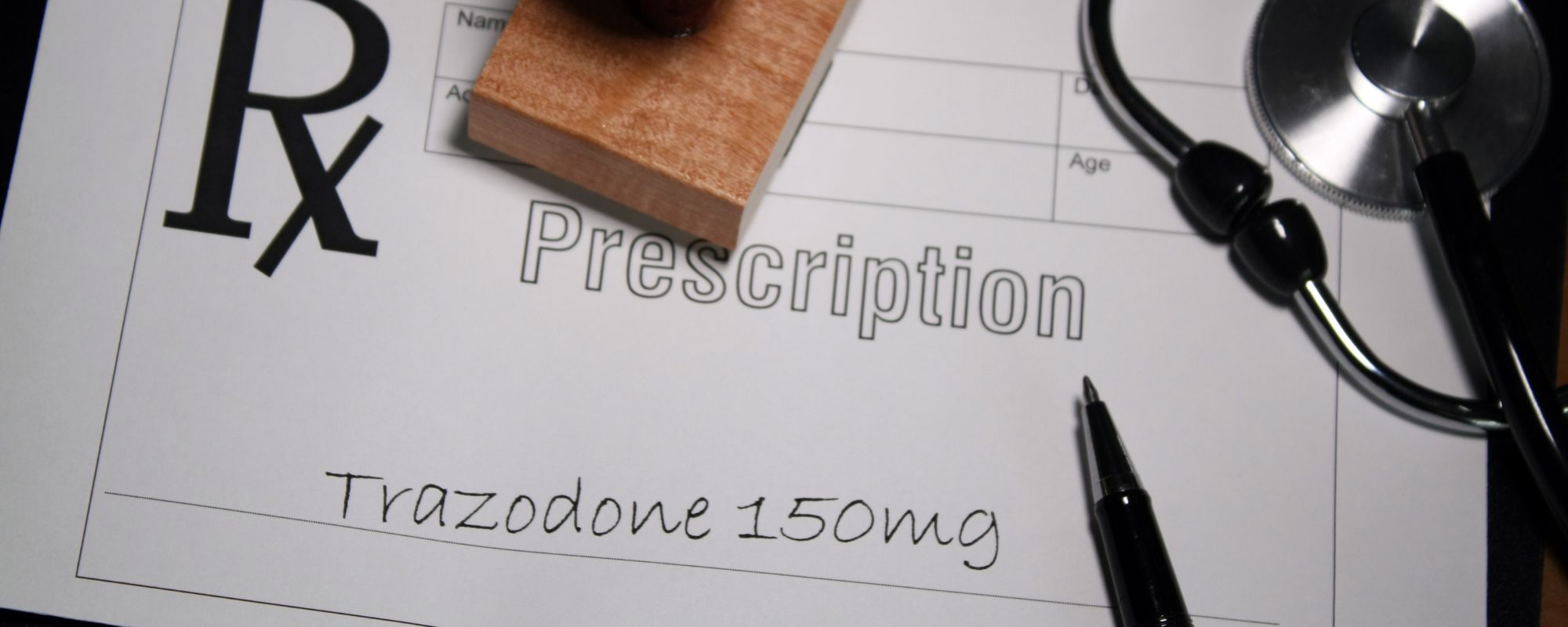Adderall is a stimulant medication comprised of a 3-to-1 ratio of dextroamphetamine to levoamphetamine. It’s typically prescribed to treat Attention Deficit Hyperactivity Disorder (ADHD). When used as prescribed, it can be effective and safe.
However, it has increasingly been abused by people who are either not prescribed it or who are able to convince doctors they have ADHD. Adderall abuse is rampant on college campuses, with one study indicating that up to 20% of all college students abuse Adderall at some point.
Long-term, frequent Adderall usage may result in psychological and physical dependency. Serious repercussions from Adderall addiction might include health concerns, financial difficulties, and legal challenges. Because of this, Adderall is categorized under the Controlled Substances Act as a Schedule II substance.
Who Can Prescribe Adderall?
Adderall is prescribed by medical professionals. This can include a general practitioner, psychiatrist, or nurse practitioner. Pediatricians can prescribe it for children with ADHD as well. It’s important for the prescribing provider to conduct a thorough evaluation and diagnosis before prescribing Adderall, as it can have side effects and potential for abuse.
How Does Adderall Work for ADHD?
This is the interesting thing about ADHD. At first glance, it might seem illogical to prescribe a stimulant to someone who has trouble sitting still or concentrating. In fact, the reason for ADHD is due to a lack of dopamine in the brain. Dopamine is the neurotransmitter linked to feelings of motivation. Without this dopamine, people feel uneasy, which is why they engage in “hyperactive” behavior to get it back, constantly seeking out novelty and thus unable to concentrate or sit still.
What Adderall does is increase the availability of dopamine – by stimulating the brain to do this, it actually calms down people with ADHD.
What Is Depression?
Depression is a common and serious mental health disorder that affects how a person feels, thinks, and handles daily activities. It is more than just feeling sad or experiencing a temporary emotional setback; it can lead to a variety of emotional and physical problems.
Symptoms include:
- Persistent sadness or emptiness
- Irritability or frustration
- Loss of interest or pleasure in activities
- Feelings of worthlessness or excessive guilt
- Difficulty concentrating or making decisions
- Changes in appetite or weight (increased or decreased)
- Sleep disturbances (insomnia or oversleeping)
- Fatigue or loss of energy
- Psychomotor agitation or retardation (restlessness or slowed movements)
- Physical aches and pains without a clear cause
The National Institute of Mental Health estimates that 21 million adults in the United States, or 8.3% of the population, experience major depressive disorder each year. The World Health Organization calls this debilitating illness the third-leading cause of disease worldwide.
Get confidential help from our addiction treatment specialists in Orange County. Call to join our rehab program today!
Call 866-881-1184Common Medications for Depression Treatment
There are a wide variety of medications that have been developed to treat depression:
Selective Serotonin Reuptake Inhibitors (SSRIs)
SSRIs increase the brain’s levels of serotonin, the neurochemical linked to feelings of well-being. Examples include Fluoxetine (Prozac), Sertraline (Zoloft), Escitalopram (Lexapro), and Paroxetine (Paxil).
Serotonin-Norepinephrine Reuptake Inhibitors (SNRIs)
Like SSRIs, SNRIs increase serotonin but also norepinephrine, a neurotransmitter and hormone related to stress and focus. Examples here include Venlafaxine (Effexor XR) and Duloxetine (Cymbalta).
Monoamine Oxidase Inhibitors (MAOIs)
MAOIs inhibit the enzyme monoamine oxidase, which breaks down neurotransmitters like serotonin and norepinephrine, leading to increased levels in the brain. Examples include Phenelzine (Nardil) and Tranylcypromine (Parnate).
These medications are not as commonly prescribed these days.
Mood Stabilizers
These include drugs like Lithium. As the name implies, they help stabilize mood swings and may be particularly useful for individuals with bipolar disorder.
Can Adderall Cause Depression?
While it can effectively improve focus and attention, abusing Adderall can certainly cause momentary depression. This is because Adderall can lead the brain to become dependent on it for dopamine production.
Post-Adderall “Crash”
After the effects of Adderall wear off, some people experience a “crash,” characterized by fatigue, irritability, and mood swings. These are all symptoms one can experience during depression as well. An Adderall crash can lead to a cycle of dependence on the medication to avoid these feelings.
Adderall and Dopamine in the Brain
Adderall increases the levels of dopamine in the brain. While this can enhance mood and focus during its active period, the subsequent drop in dopamine when the medication wears off can contribute to feelings of depression. If the brain becomes reliant on Adderall for dopamine release, it may struggle to produce adequate levels naturally, leading to mood disorders.
Adderall Withdrawal Symptoms
If a person stops taking Adderall abruptly or after prolonged use, they may experience withdrawal symptoms.
These include:
- Fatigue and low energy
- Increased sleepiness or insomnia
- Depression and mood swings
- Anxiety or irritability
- Difficulty concentrating
- Intense cravings for Adderall
- Increased appetite
- Body aches and muscle pain
- Slowed heart rate
- Headaches and nausea
This withdrawal phase can be challenging and may exacerbate any underlying mood disorders, such as depression.
Signs that Adderall is Causing Depression
Adderall abuse can sometimes lead to depressive symptoms, especially in individuals who may be sensitive to its effects or have underlying mental health conditions.
Here are signs that Adderall may be contributing to depression:
- Persistent Low Mood: If you experience ongoing feelings of sadness or hopelessness that weren’t present before taking Adderall, this could indicate that the medication is affecting your mood.
- Increased Irritability and Emotional Sensitivity: Adderall can sometimes cause mood swings or emotional lability, leading to frequent irritability or sensitivity, even over small issues. If these symptoms appear or worsen with Adderall, it could be linked to the medication.
- Loss of Motivation or Interest: Adderall typically boosts focus and motivation, but if you find yourself feeling apathetic or unmotivated when the medication wears off, this “rebound effect” might be a sign of depressive symptoms induced by the drug.
- Fatigue and Low Energy Post-Use: After Adderall wears off, you may feel drained, tired, or lethargic. If this post-use fatigue becomes severe or is accompanied by feelings of sadness or lack of motivation, it may signal a depressive response.
- Social Withdrawal: If you start withdrawing from social activities you previously enjoyed, especially during times when you’re not actively using Adderall, it might indicate depressive side effects.
- Trouble Sleeping: Adderall can interfere with sleep patterns, leading to insomnia or restless sleep. Chronic sleep disruption can contribute to mood disorders, including depression.
- Anxiety or Agitation: For some, Adderall can increase anxiety, which is often closely related to depression. If you appear more anxious, on edge, or overly self-critical while on Adderall, these symptoms can contribute to a depressive state over time.
If you notice these signs consistently while taking Adderall, consider changing your dose or getting off it entirely. If you find that difficult, reach out to an addiction treatment center.
Looking for quality substance abuse treatment that’s also affordable? South Coast accepts most major insurance providers. Get a free insurance benefits check now.
Check Your CoverageWho Offers Help for Adderall Abuse?
If you or a loved one are seeking treatment for addiction, South Coast Behavioral Health is here to help. The first step in treating addiction is a medical detox. This means using drugs to manage withdrawal symptoms.
Our medical detox program in California is staffed by caring and compassionate professionals who can provide you with medications to manage your withdrawal symptoms.
At South Coast, we take pride in offering care that is closely tailored to specific issues. To that end, we offer gender-specific detox programs, with medical detox for men in Irvine, CA, and medical detox for women in Huntington Beach, CA.
After detoxing, proper treatment can begin.
Treatment for substance abuse takes place along an entire spectrum of care. Along that entire spectrum are various behavioral therapies, support groups, and the use of medically-assisted treatment (MAT).
These levels of treatment are, in order, as follows:
Residential Treatment in California
After successfully completing medical detox, you’ll receive inpatient treatment in Orange County, California. There, you’ll receive medically-assisted treatment and dual diagnosis treatment to deal with any cravings or co-occurring mental health issues you may be battling.
We also offer residential treatment facilities in Costa Mesa, Irvine, and Huntington Beach for those who desire gender-specific treatment. There, patients get round-the-clock medical attention and monitoring while living at the institution full-time.
In addition to individual and group counseling and medication management, you’ll also have access to leisure activities and family support services.
Partial Hospitalization in California
Most patients start substance abuse treatment with South Coast in our residential treatment program. After completing that, many desire something that still provides structure and support but with extra space and time to oneself. For that, we offer Partial Hospitalization in Newport Beach.
A step down from inpatient care but with more structure than conventional outpatient programs, partial hospitalization offers a good balance for those looking to ease back into normal life. patients can receive care five to seven days a week for a number of hours each day, returning back to their homes in the evening.
This way, they can recover without putting their daily lives completely on hold, receiving intense therapeutic interventions like group and individual therapy, skill development, and medication management as necessary.
Intensive Outpatient Treatment in California
For those leaving inpatient residential treatment or partial hospitalization, intensive outpatient programs (IOP) are yet another gradual step forward on the road to recovery.
With a focus on group therapy, individual counseling, and education, patients undergoing Intensive Outpatient Treatment in Newport Beach can meet three to five days a week. Each session lasts three hours.
This level of care requires the least amount of attendance at a facility.
Start Today
If you or a loved one are struggling with addiction but wonder how long addiction treatment takes or have other questions, call us at 866-881-1184 or contact us here. Our highly qualified staff will be happy to help give you an idea of what to expect from your addiction recovery timeline, verify your insurance, and assist with any other questions you may have.






